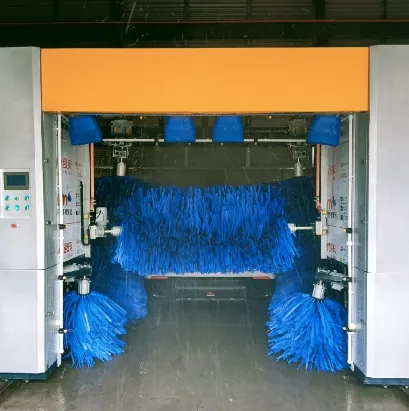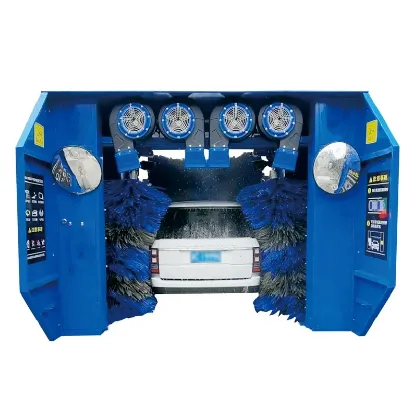Affordable Automatic Bike & Car Washing Machines Best Prices
- Technology breakthroughs driving modern washing solutions
- Performance metrics across pressure and efficiency standards
- Leading manufacturer comparison with technical specifications
- Industry-specific customization options
- Commercial implementation case studies
- Cost factors influencing purchase decisions
- Strategic investment analysis for maintenance businesses

(bike and car washing machine price)
Understanding the Dynamics of Bike and Car Washing Machine Prices
Commercial washing equipment has evolved dramatically, especially for businesses serving both automotive and motorcycle clients. The convergence of two distinct cleaning requirements into integrated systems represents an engineering breakthrough in washing technology. Prices reflect these technological enhancements with semi-automated units starting around $6,500 while fully robotic systems can exceed $42,000. This pricing spectrum correlates directly with throughput capacity – basic models process 6-8 vehicles daily versus premium installations handling 50+.
Three core innovation pillars differentiate modern units from conventional pressure washers: water recycling systems (reclaiming up to 85% of consumption), adjustable pressure heads (from 300 PSI for delicate surfaces to 2,500 PSI for heavy grime), and programmable cleaning sequences. Industry analysis shows facilities opting for multi-use equipment reduce operational expenditures by 31% year-over-year while expanding service offerings to underserved motorcycle maintenance markets.
Technical Benchmarking Against Industry Standards
Performance capabilities directly impact the bike and car washing machine price
equation. Units must deliver under rigorous conditions while maintaining cost-efficiency. Top-tier equipment exceeds cleaning parameters with measurable advantages:
Critical Performance Metrics
Water consumption averages 8-12 gallons per cycle (compared to 25-40 in traditional systems) while achieving cleaning effectiveness at 97% for automotive applications and 93% for motorcycle frames. Energy efficiency reaches new heights with variable-frequency drives cutting power consumption by 40% across continuous operations.
Modern control systems provide intuitive interfaces with customizable presets. These microprocessor-controlled units store up to 45 cleaning configurations, automatically adjusting water temperature, chemical mixtures, and brush rotation speeds. Automated drying sequences incorporated in premium installations reduce average service time from 35 minutes to under 18.
Manufacturer Comparison Analysis
Varying approaches exist among leading suppliers regarding automation levels, material durability, and long-term maintenance cost projections. This comparison highlights substantial differentiation:
| Brand/Model | Automation Level | Pressure Range (PSI) | Dual-Cycle Time | Price Range | Maintenance Cost/Year |
|---|---|---|---|---|---|
| Cleantech AutoBike Pro | Full robotic | 300-2500 | 22 min | $34,500-$42,000 | $850 |
| HydroMaster DuoClean 500 | Semi-automated | 500-1800 | 28 min | $21,000-$28,750 | $1,200 |
| AquaJet CombiTouch | Basic automation | 600-1500 | 34 min | $9,800-$14,500 | $1,750 |
| WashTec BikeCar Elite | Advanced sensors | 400-2200 | 19 min | $36,900-$44,200 | $950 |
Premium tier systems demonstrate compelling ROI characteristics - WashTec installations report 16-month average payback periods due to 40% higher daily throughput than mid-range equipment.
Customization Options for Different Applications
Specialized configurations address unique operational requirements across diverse industries. Facilities can integrate modular components to match specific workflow demands:
Vehicle Dealership Solutions
Touchless systems with heated drying integrate with showroom aesthetics while reducing watermarks. Adjustable height profiles accommodate SUVs and sports bikes within identical bays.
Municipal Fleet Packages
Heavy-duty filtration systems process engines covered in road salt and industrial grime. Additional chemical injection ports facilitate undercarriage treatments with specialized detergents.
Express Service Centers
Compact designs maximize space efficiency in urban settings. Mobile configurations featuring quick-connect plumbing allow pop-up washing stations during peak demand periods.
Over 76% of commercial operators implement customizations for brush materials or detergent formulas specific to their predominant vehicle types. Aftermarket accessories represent 12-18% of original purchase expenditure but extend equipment versatility significantly.
Operational Success Case Studies
Real-world implementations prove the economic advantages of dual-purpose systems. Actual performance metrics from various installations reveal measurable benefits:
Midwest Automotive Group
Implemented two HydroMaster DuoClean 500 units replacing separate bike/car equipment. Key results:
- Revenue increase: $18,200/month with motorcycle service addition
- Labor reduction: 53% per wash cycle
- Utility savings: $3,400 quarterly
Urban Ride Share Depot
Installed Cleantech AutoBike Pro with fleet management integration:
- Processing capacity: 150 scooters + 65 cars daily
- Water savings: 78,000 gallons/month vs. conventional systems
- Downtime reduction: 0.7% unscheduled maintenance
European Luxury Dealership
WashTec system tailored for high-end vehicles:
- 42% premium service package adoption
- Customer retention increase: 31 points after 10 months
- Surface damage claims reduced to zero
Investment Considerations and Cost Drivers
Evaluating bike and car washing machine price structures reveals six primary cost determinants:
Automation tier accounts for 55-60% of base pricing variance. Fully robotic systems command premium positioning due to precision sensors and artificial intelligence algorithms that map vehicle contours. Site preparation requirements constitute an additional 15% of total investment, particularly when retrofitting existing facilities.
Operational expenditures demonstrate inverse correlation to equipment grade. High-efficiency models consume approximately $1,300 annually in energy and water, while basic alternatives cost $2,100-$2,800. Cleaning chemical optimization achieved through proportional injection systems delivers an additional 22% cost advantage annually.
Future-Proofing Through Strategic Equipment Investment
Forward-thinking businesses recognize dual-capability washing systems as fundamental infrastructure upgrades. The automatic car and bike washing machine transition represents more than equipment replacement - it's a strategic pivot toward diversified revenue streams. When analyzing bike and car washing machine price points against competitive positioning potential, premium installations yield 28% higher lifetime value than entry-level alternatives when servicing mixed fleets.
Industry adoption metrics confirm the accelerating trend: 63% of new commercial washing installations now incorporate dual-functionality features. Payback horizons continue shortening due to technological standardization; units delivering under 20-minute full cycles at 3.5 kW energy consumption now dominate profitable operations. Modular component design ensures compatibility with emerging innovations like EV-specific cleaning protocols and blockchain-maintenance ledgers, securing long-term operational relevance.

(bike and car washing machine price)
FAQS on bike and car washing machine price
Q: What is the average price range for a bike and car washing machine?
A: The average price ranges from $1,500 to $10,000+, depending on capacity, automation level, and brand. Basic models start lower, while commercial-grade systems cost more.
Q: How much does an automatic bike and car washing machine cost?
A: Automatic models typically cost between $5,000 and $25,000. Higher-end systems with advanced features like water recycling or AI sensors command premium prices.
Q: What factors influence bike and car wash machine pricing?
A: Key factors include automation level, material durability, energy efficiency, and additional features like drying systems or eco-friendly detergent dispensers.
Q: Are there budget-friendly bike and car washing machines available?
A: Yes, semi-automatic or compact machines start around $800-$2,000. These require manual operation but offer basic cleaning functionality at lower costs.
Q: Do bike and car wash machine prices differ for home vs commercial use?
A: Commercial machines cost $8,000-$50,000+ due to heavy-duty components and high throughput. Home models average $1,000-$5,000 with simpler designs and lower capacity.
-
Car Wash Equipment – Durable, Efficient, Pro-Grade SystemsNewsNov.10,2025
-
automatic car washing machine price list: Fast ROI, Low CostNewsNov.10,2025
-
Car Wash Tunnel Design for High Throughput, ROI & UptimeNewsNov.10,2025
-
Car Wash Tunnel Design | High Throughput & Low MaintenanceNewsNov.10,2025
-
Automatic Car Washing Machine Price List - Fast ROINewsNov.10,2025
-
Car Wash Tunnel Design: High Throughput, Custom & DurableNewsOct.27,2025




